Classics of Western Spirituality: Post-Reformation Christianity (44 vols.)
Digital Verbum Edition
Overview
The Reformation was a definitive turning point in the church’s history, and it continues to influence both the church and modern society. The Post-Reformation Christianity collection comprises a diverse collection of writings—from both Protestant and Catholic perspectives—on spirituality, mysticism theology, worship, vocational ministry, and more. Additionally, the collection includes anthologies of poetry, hymns, sermons, and philosophical treatises. It includes works from famous authors such as Martin Luther, John Calvin, and John Henry Newman, as well as writings from lesser-known authors, including Jeanne Guyon, Miguel de Molinos, and Elisabeth Leseur.
In the Verbum editions, these valuable volumes are enhanced by amazing functionality and features. Scripture and ancient-text citations link directly to English translations and original-language texts, and important terms link to dictionaries, encyclopedias, and a wealth of other resources in your digital library. The Topic Guide lets you perform powerful searches to instantly gather relevant biblical texts and resources. Tablet and mobile apps let you take the discussion with you. With Verbum Software, the most efficient and comprehensive research tools are in one place, so you get the most out of your study.
Looking for more resources from the Classics of Western Spirituality collection? Check out the Classics of Western Spirituality Bundle (126 vols.).
Key Features
- Presents Protestant and Catholic texts on spirituality from the Reformation to the Modern period
- Includes both famous authors and lesser-known writers
- Provides a panoramic view of Post-Reformation Western Spirituality
Individual Titles
- Alphonsus de Liguori: Selected Writings edited by Fredrick M. Jones
- Angelus Silesius: The Cherubinic Wanderer translated by Maria Shrady
- Bérulle and the French School: Selected Writings edited by William M. Thompson
- Elisabeth Leseur: Selected Writings edited by Janet Ruffing
- Francis de Sales, Jane de Chantal: Letters of Spiritual Devotion translated by Péronne Marie Thibert
- John Baptist de La Salle: Spirituality of Christian Education edited by Carl Koch, Jeffrey Calligan, and Jeffrey Gros
- John of Avila: Audi, filia–Listen, O Daughter translated by Joan Frances Gormley
- John of the Cross: Selected Writings edited by Kieran Kavanaugh
- Luis de León: The Names of Christ translated by Manuel Durán and William Kluback
- Maria Maddalena de’ Pazzi: Selected Revelations translated by Amando Maggi
- Robert Bellarmine: Spiritual Writings edited by John P. Donnelly and Roland J. Teske
- Sor Juana Inés de la Cruz: Selected Writings translated by Pamela Kirk Rappaport
- Teresa of Avila: The Interior Castle edited by Kieran Kavanaugh
- Theatine Spirituality: Selected Writings edited by William V. Hudon
- Vincent de Paul and Louise de Marillac: Rules, Conferences, and Writings edited by Frances Ryan and John E. Rybolt
- Fénelon: Selected Writings edited by Chad Helms
- Jeanne Guyon: Selected Writings edited by Dianne Guenin-Lelie and Ronney Mourad
- Miguel de Molinos: The Spiritual Guide edited by Robert P. Baird
- Emanuel Swedenborg: The Universal Human and Soul-Body Interaction edited by George F. Dole
- Valentin Weigel: Selected Spiritual Writings translated by Charles Andrew Weeks
- Nicodemos of the Holy Mountain: A Handbook of Spiritual Counsel translated by Peter A. Chamberas
- Nil Sorsky: The Complete Writings edited by George A. Maloney
- The Pilgrim’s Tale edited by Aleksei Pentkovsky
- Cambridge Platonist Spirituality edited by Charles Taliaferro and Alison J. Teply
- Early Anabaptist Spirituality: Selected Writings edited by Daniel Liechty
- Early Protestant Spirituality edited by Scott H. Hendrix
- George Herbert: The Country Parson and the Temple edited by John N. Wall Jr.
- Jacob Boehme: The Way to Christ edited by Peter C. Erb
- Jeremy Taylor: Selected Works edited by Thomas K. Carroll
- Johann Arndt: True Christianity translated by Peter C. Erb
- John and Charles Wesley: Selected Writings and Hymns edited by Frank Whaling
- John Calvin: Writings on Pastoral Piety edited by Elsie Anne McKee
- John Comenius: The Labyrinth of the World and the Paradise of the Heart translated by Howard Louthan and Andrea Sterk
- John Donne: Selections from Divine Poems, Sermons, Devotions, and Prayers edited by John Booty
- Luther’s Spirituality edited by Philip D. W. Krey and Peter D. S. Krey
- Quaker Spirituality: Selected Writings edited by Dorothy M. Steere
- Seventeenth-Century Lutheran Meditations and Hymns edited by Eric Lund
- The Spirituality of the German Awakening edited by David Crowner and Gerald Christianson
- The Pietists: Selected Writings edited by Peter C. Erb
- The Shakers: Two Centuries of Spiritual Reflection edited by Robley E. Whitson
- The Theologia Germanica of Martin Luther by Bengt Hoffman
- William Law: A Serious Call to a Devout and Holy Life, the Spirit of Love edited by Paul Stanwood
- Wycliffite Spirituality edited by J. Patrick Hornbeck II, Stephen E. Lahey, and Fiona Somerset
- John Henry Newman: Selected Sermons edited by Ian Ker
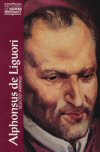
This volume contains selected writings of Alphonsus de Liguori (1696–1787); saint, bishop, founder of the Redemptorists, and doctor of the church. These writings touch on many different areas: spirituality, spiritual direction, devotion, prayer, and moral theology.
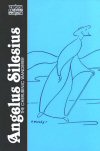
This volume contains poetic texts by one of the great German mystics of the seventeenth century, Angelus Silesius (1624–1677). These texts, written in the form of the epigram, are still used today for contemplative prayer and as part of German Christmas folklore.
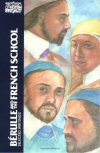
This work provides an introduction to the history and major themes of the seventeenth-century French School of Spirituality and its contemporary relevance. Included are works of Pierre de Bérulle (1575–1629), Madeleine de Saint-Joseph, Jean-Jacques Olier, and John Eudes.
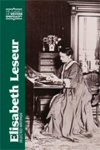
Elisabeth Leseur (1866–1914) was a French lay women whose work touched suffering, devotions, and lay and feminist spirituality. This volume contains selections from her entire corpus, including her letters, which have never before appeared in English.
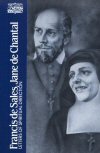
This volume consists of letters of spiritual direction written by Francis de Sales (1567–1622) and Jane de Chantal (1572–1641) that reveal the richness of Salesian spirituality. The letters show the daily attempts of laity, clergy, cloistered religious, and others to live in the authentic spirit of Jesus.
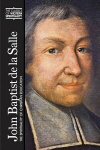
This book discusses the spirituality of the first major spiritual writer (1651–1719) to integrate the Christian vocation of education of the poor by lay men and women into a coherent spirituality. John Baptist de La Salle is considered to be the founder of modern education.
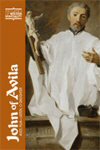
This volume contains a general introduction to the life and work of St. John of Avila (1499–1569), a major figure in the reform of the church in sixteenth-century Spain, along with a translation of his major work, the Audi, Filia, a guide to the spiritual life beginning from the ascetical practices of resisting the allurements of the world and terminating in union with the crucified Lord by which the soul shares Christ’s radiant beauty.
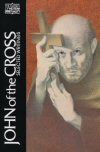
This volume contains carefully chosen texts that give a picture of the “essential” St. John of the Cross (1542–1591), a Spanish Carmelite. Included are selections from The Ascent of Mount Carmel, The Dark Night, and Spiritual Canticle.
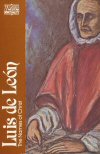
The Names of Christ, a masterpiece of the golden age of Spain, was written by Luis de León (1527–1591), an Augustinian friar, a professor, and a poet. Written in the style of a pastoral dialogue, it is a meditation on the significance of Christ’s names.
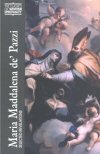
In one of the only English translations available, here are the mystical visions of Maria Maddalena de’ Pazzi (1566–1606), whose mystical works are a fascinating meditation on the nature and purpose of language.
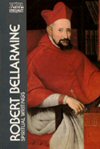
Robert Bellarmine: Spiritual Writings
- Author: Robert Bellarmine
- Editors: John P. Donnelly and Roland J. Teske
- Translators: John P. Donnelly and Roland J. Teske
- Series: The Classics of Western Spirituality
- Publisher: Paulist Press
- Publication Date: 1988
- Pages: 416
Robert Bellarmine (1542–1621), a Jesuit as well as a leading theologian of the Counter-Reformation, had an enormous effect on the religious life of his age. Included in this volume are two of his most influential ascetical works: The Mind’s Ascent to God, written in the tradition of Bonaventure and John Climacus, and The Art of Dying Well.
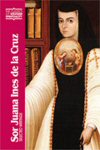
Sor Juana Ines de la Cruz (1648–1695), a Mexican Hieronimite nun, is considered to be one of the great lyric poets of the Spanish language. Here is the only translation of her religious writings in one volume, including poetry, drama, devotional works and her intellectual autobiography.
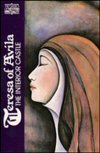
Teresa (1515–1582), a Spanish mystic, is considered to be one of the most profound spiritual teachers in the history of Christianity. The Interior Castle is Teresa’s masterpiece.
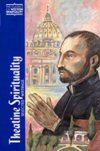
This volume presents key spiritual writings by members of the Theatine religious order, founded in Italy in 1524, along with an introduction that places the texts and the order in the context of Renaissance and Counter-Reformation Italy.
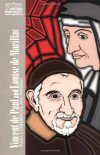
This volume contains the rules, conferences and writings of these two Vincentian founders who, through service to the poor, left an indelible mark on the church in France in the seventeenth century and beyond. Louise de Marillac (1591–1660) first came to Vincent de Paul (1581–1660) for spiritual direction and they became coworkers and friends for the rest of their lives.
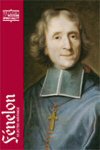
This book offers, for the first time in English, a translation of Fénelon’s (François de Salignac de la Mothe-Fénelon) (1651–1715) major spiritual writing, the Maxims of the Saints and other seminal works of fiction and spiritual direction, such as the famous “Letter to Louis XIV.”
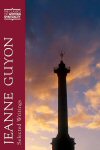
Jeanne Guyon: Selected Writings
- Author: Jeanne Guyon
- Editor: Dianne Guenin-Lelie and Ronney Mourad
- Translator: Dianne Guenin-Lelie and Ronney Mourad
- Series: The Classics of Western Spirituality
- Publisher: Paulist Press
- Publication Date: 2012
- Pages: 368
Jeanne Guyon was a seventeenth-century French mystic and Quietist, and a fascinating figure in the court of Louis XIV. This book offers new translations of her most important spiritual and autobiographical writings and introduces readers to her life and work.
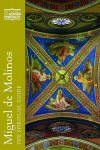
This volume features an unabridged translation into modern English of The Spiritual Guide, one of the classic texts of the Quietist movement. The Spiritual Guide was written by Miguel de Molinos (c. 1628–1696), who was one of the most important figures in the religious controversy known as Quietism.
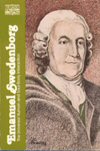
These writings from Emanuel Swedenborg (1688–1771), the eighteenth-century Swedish scientist and visionary, are among the most influential in the Western esoteric tradition.
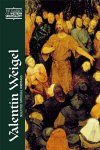
This volume contains the first English translations of key works by Valentin Weigel (1533–1588), an important German thinker and theologian. Also included is an introduction to the context and sources of his thought.
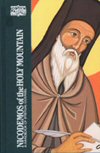
Nicodemos (1749–1809), a monk of Saint Athos dedicated to asceticism and learning, was one of the most influential Orthodox writers of the last two centuries. His Handbook, written during the Enlightenment in Europe, shares an exalted vision of human nature, but a vision that proceeds from the truths of revelation as interpreted by the Greek Fathers, not Descartes.
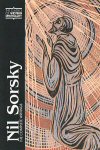
This volume contains a first-time translation from Russian into English of the complete writings of Nil Sorsky, a fifteenth-century Russian spiritual writer notable for bringing to Russia the spirituality of the early Church Fathers and mothers of the desert, the hesychasm spirituality of the heart.
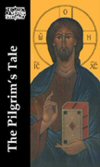
In this volume is the authentic text of one of the most famous examples of Russian spiritual literature, which deals with various aspects of the Jesus Prayer. A redaction of this text is thought to have been written no earlier than 1859.
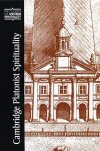
This volume is a collection of poetry, sermons, treatises, and essays by seventeenth-century English philosophers devoted to the goodness of God and the spiritual importance of reason.
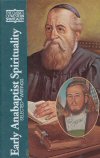
This volume consists of an anthology of early to mid-sixteenth-century writings that illuminate the distinctive character of early Anabaptist ideology. The writings focus on the themes of regeneration, the Anabaptist fellowship, and the demands of discipleship.
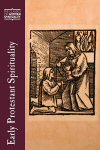
This volume is an anthology that includes writings by the Magisterial Reformers (Luther, Melanchthon, Calvin, etc.) along with lesser-known names (Frith, Capito, Vermigli, etc.) to provide a unique insight into Protestant spirituality as it developed from the earliest days of the Reformation.
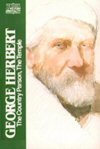
George Herbert (1593–1633) was an Anglican priest, poet, and essayist—truly one of the most profound spiritual masters in the English tradition. His spirituality was a synthesis of Evangelical and Catholic piety.
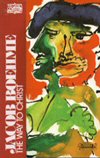
This volume contains an introduction to the thought and spirituality of Jacob Boehme (1575–1624), a German Lutheran and one of the greatest Christian mystics. The Way to Christ is a collection of nine treatises intended to serve as a meditation guide.
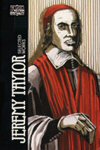
This volume contains selections from the writings of Jeremy Taylor (1613–1667), “The Shakespeare of English prose,” which illustrate the underlying theological synthesis of the Caroline Divines and the unity of language and faith that expressed their spirituality.
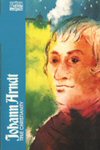
Never before translated into English, this book by the sixteenth-century Lutheran mystic Johann Arndt (1555–1621) has been the foundation for countless spiritual works both Protestant and Catholic.
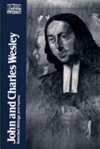
The leaders of the Methodist revival that swept eighteenth-century England, John and Charles Wesley reveal a spirituality that synthesizes a unique blend of the Church Fathers, Catholic mystics and Protestant Reformers. The major works of the Wesleys appear in this volume, including John Wesley’s Plain Account of Christian Perfection and Charles Wesley’s Hymns.
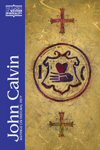
This volume presents select works of John Calvin (1509–1564), the great Reformer of Geneva, with special emphasis on his piety.
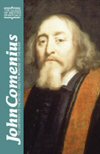
One of the most significant works in Czech literature, this is a new English translation of an allegory of the spiritual journey as experienced by a seventeenth-century pilgrim. John Comenius (1592–1670) was the pastor and spiritual leader of the Bohemian Brethren (Unitas Fratrum), a Czech Protestant group inspired by the Hussite movement of the fifteenth century.
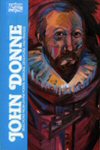
This volume is a spiritual and literary exploration of the famed Renaissance poet John Donne (1572–1631) that looks at his life and work, the transformation of his writing from secular to spiritual, and his relation to modern critics.
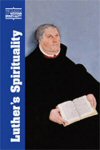
Luther’s Spirituality introduces readers to the profound depth and complex issues surrounding the great Reformer’s spirituality.
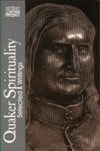
This volume contains the writings of the major voices of the Quaker movement from the eighteenth to the twentieth centuries, including the journals of George Fox, The Journal of John Woolman, Thomas Kelly’s Testament of Devotion, and selections from Caroline Stephens and Rufus Jones.
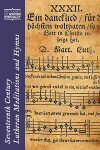
Seventeenth-Century Lutheran Meditations and Hymns
- Editor: Eric Lund
- Series: The Classics of Western Spirituality
- Publisher: Paulist Press
- Publication Date: 2011
- Pages: 384
In this volume, a specialist in seventeenth-century Germany piety and devotional writings presents new translations of the prose works and hymnody from the century following the start of the Protestant Reformation.
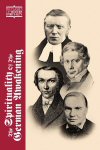
This volume is an introduction to the spiritual writings of four influential Germans from the nineteenth century who led the revival movement known as the “German Awakening.” Much of the material appears here for the first time in English.
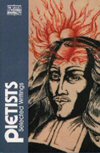
Pietism, with its origins in late-sixteenth and early-seventeenth-century German Lutheranism, emphasized conversion, union with Christ, and importance of Scripture. This volume is the most comprehensive collection of Pietist writings available in English.
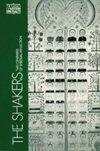
This volume studies the Shaker tradition from its origin in late-eighteenth-century England to its flowering in nineteenth-century America. Here are the collected teachings of Ann Lee, Joseph Meacham, John Dunlavy and others on community, celibacy, union with Christ, faith as process, and the male/female aspects of God.
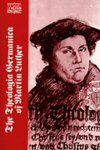
Written around 1350 by an anonymous author, this is a simple yet profound book about life in God as it translates into life in the world. This translation was based on Luther’s German edition of 1518.
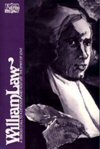
Often called the greatest of the Post-Reformation English mystics, William Law’s (1686–1761) writings, included in this volume, reflect his genius of literary style and religious devotion.
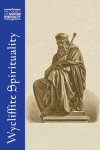
Wycliffite Spirituality
- Editors: J. Patrick Hornbeck II, Stephen E. Lahey, and Fiona Somerset
- Translators: J. Patrick Hornbeck II, Stephen E. Lahey, and Fiona Somerset
- Series: The Classics of Western Spirituality
- Publisher: Paulist Press
- Publication Date: 2013
- Pages: 432
Dating from the late medieval period in England, this volume is a collection of English translations of Wycliffe’s writings, the Wycliffite texts. The records of heresy trials discloses that, far from practicing a wholly negative Christianity, Wycliffites were as keenly interested in the spiritual life as many of their contemporaries.
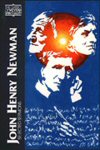
John Henry Newman (1801–1890), a convert from Anglicanism, is a seminal Roman Catholic theologian. This volume includes 34 of his Anglican sermons and four from other sources. This edition contextualizes Newman’s spirituality and is notable for its introduction by Ker, a leading Newman scholar.
Product Details
- Title: Classics of Western Spirituality: Post-Reformation Christianity
- Series: The Classics of Western Spirituality
- Publisher: Paulist Press
- Volumes: 44
- Pages: 15,197
Looking for more resources from the Classics of Western Spirituality collection? Check out the Classics of Western Spirituality Bundle (126 vols.).
- Presents Protestant and Catholic texts on spirituality from the Reformation to the Modern period
- Includes both famous authors and lesser-known writers
- Provides a panoramic view of Post-Reformation Western Spirituality
- Title: Classics of Western Spirituality: Post-Reformation Christianity
- Series: The Classics of Western Spirituality
- Publisher: Paulist Press
- Volumes: 44
- Pages: 15,197